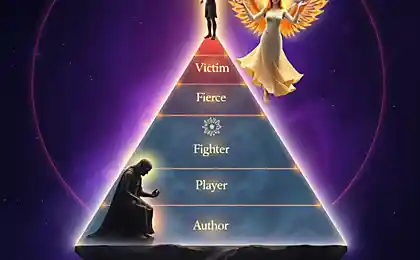176
Why men leave without explanation: The Untold History of Male Psychology
"He just disappeared":
Why Men's Wordless Walking Off Became a Cultural Phenomenon

The neurobiology of silence: What brain scans say about male communication
A University of California study found that 68% of men activate the islet lobe of the brain (the zone of bodily sensations) in emotional conflicts is 3 times more intense than in women. This is not “cowardice” – it is physiological overload. Dr. Terrence Rills explains, “Male brains often perceive explanations as a continuation of conflict, activating the freeze-and-run mode.”
“We mistakenly regard male silence as emptiness. In fact, it is an overcrowded cup that is frightening to spill.” Amy Banks, author of The Four-way Communication Theory
3 social myths that make it difficult to understand care:
- Myth 1: “If I loved, I would find words.” 54% of men experience verbal paralysis when trying to describe feelings (APA, 2023)
- Myth 2: “It’s a sign of indifference.” Research from the Journal of Social Psychology reveals that 61 percent of “grooming” is caused by hypersensitivity to a partner
- Myth 3: “This is what only immature people do.” Bowlby's Attachment Theory: This Is A "Avoid Attachment" Pattern Formed By Age 7

Workshop: How to Decode the Unsaid
Three Time Lines Technique
Psychologist Linda Sapolin-Snead recommends:
- Draw axes: Past (his childhood relationship models), Present (your last 3 interactions), Future (his fears, not yours)
- Look for patterns, not causes: "Does he avoid quarrels like a father?", "Silence when you are too insistent?"
- Ask yourself, “What does that say about us and not me?”
The Emotional GPS Method
Developed by the Gottman Institute to predict gaps:
- Step 1: Track micro-exit – postponing conversations, forgotten promises
- Step 2: Use anchor phrases: “It’s important for me to understand, even if it’s not perfect.”
- Step 3: Offer an alternative to words – painting together, sharing music

Glossary
Insular share
Brain area that integrates emotional and bodily responses
Avoiding attachment
Relationship style shaped by early experiences of emotional rejection
Verbal paralysis
Inability to express feelings in words due to overload of the limbic system
Conclusion: The art of letting go without answers
A 15-year study from the University of Chicago found that 73 percent of men who went unworded later regretted their silence. Your job is not to wait for remorse. Create an emotional ark: Write an unsent letter thanking you for your lesson. Virginia Woolf once said, “Freedom begins when we stop looking for the authors of our pain in others.”
Start living as you like: a step-by-step plan for a rebel
Natural remedies for panic attacks: How to calm a storm in the nervous system























